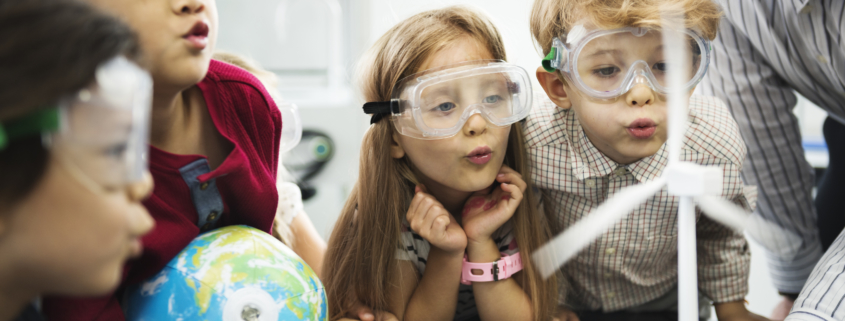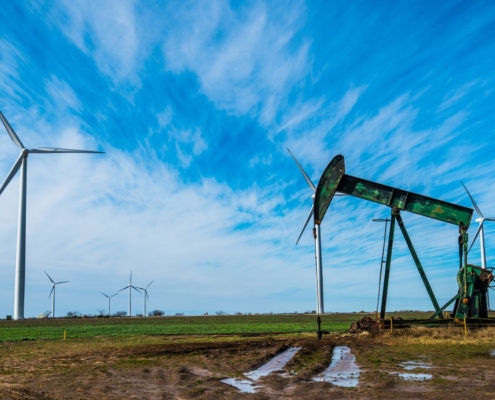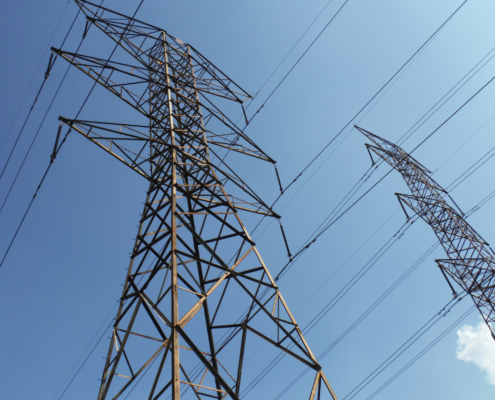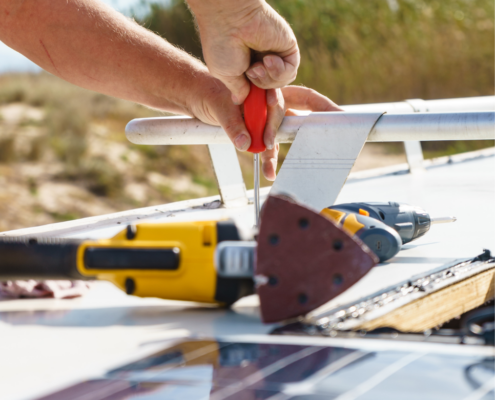Last Updated on January 25, 2023 by Mary Pressler

5 Tips to Help Your Child Become More Energy Conscious
Kids are eager to learn and grow. While you may want to leave core subjects like math and language arts to the school district, you can make the most of your time at home by teaching your kids how to save energy and do their part to help the environment.
Where do you begin? We have a few ideas to help you communicate with your kids about energy conservation and its importance for the planet—and your bank account!
1. Demonstrate How to Care About Saving Energy
Leading by example is perhaps the most powerful way to instill good energy ethics. Make sure you and the other adults in your household practice energy- and cost-saving habits, including:
A. Turn Off Unused Appliances
A widespread energy-wasting practice is leaving on appliances and TVs that are not in use. While this may only add a few cents to your daily expenses, the cumulative effect can be significant—a day-to-day energy waste of $0.25 adds up $91.25 in a year! This is especially true if your home still has older and inefficient devices, such as window-type air conditioners and incandescent bulbs. If you get into the habit of turning off appliances that are not needed, kids will most likely follow your example.
Automation tools can make the task of saving energy easier. Consider getting technology, such as occupancy sensors that turn off the lights when no one is in the room and smart thermostats that regulate air conditioning and space heating. There are also LED light bulbs that can be dimmed down from a mobile application or a wall-mounted slider switch.
B. Set Your Thermostat at Moderate Temperatures
Another common habit that wastes vast amounts of energy is setting the thermostat at extreme values—i.e., the coldest possible temperature in summer and the warmest possible temperature in winter. Your heating and cooling systems detect this as an instruction to work at full capacity at all times— even when you only need moderate heating or cooling.
The U.S. Department of Energy recommends a maximum temperature setting of 68°F for winter and a minimum setting of 78°F for summer. When no one will be at home, the thermostat can be set for additional savings—slightly higher during summer and lower during winter.
This routine can be forgotten at times, but a smart thermostat can adjust the temperature automatically. Checking the thermostat can also be assigned as a household chore. Even though smart thermostats can “learn” over time, heating and cooling schedules change throughout the year, so it’s helpful to have a human monitor and adjust it if necessary.
C. Use Smartphone Apps for Solar Power Systems
Got solar panels? Many manufacturers of inverters for solar power systems offer mobile applications to track how much clean energy you have produced and how much money you have saved on your power bills.
A solar power app gives you a daily snapshot of energy output, giving you an idea of the monthly savings you can expect. You can also observe how solar production changes depending on the weather and the season of the year. Another advantage of the app is that it detects if you are getting unusually low production on sunny days. Armed with that knowledge, you can call your PV system provider for an inspection.
D. Teach Them to Take Shorter Showers
It requires a great deal of energy to refill and reheat a hot water heater. Shorter showers conserve energy and reduce costs. If you are guilty of indulging in long, hot showers, your children won’t be as likely to heed your requests to quicken theirs. Consider setting a time limit for showers and make sure you personally don’t break the rules.
E. Keep On Recycling
Recycling requires a bit more effort and organization, but it’s so important. In many ways, recycling saves energy. Kids love to sort, so let them. Teaching them how to properly dispose of trash is key in teaching energy conservation.
2. Give Kids a Hands-On Experience in Energy
Most kids prefer hands-on learning. It’s an important aspect of development and comprehension. Hearing why energy conservation is important, but seeing the inner workings and possibilities of a green life take things to a new level. Children want to understand how things work and what happens when they don’t work. Not only are the projects listed below fun, but also they provide team-building opportunities for your entire family.
- Make a Circuit Board – Circuit boards come in many different sizes and levels of difficulty, so they are easily adaptable to your child’s age and capabilities. You can also buy circuit boards for kids on Amazon.
- Design a Solar Powered LEGO Car – If you’re tired of stepping on your child’s LEGOs, consider this activity, which will help keep those painful little gems off your floor. Moreover, it’s a wonderful opportunity to teach your kids about the advantages of solar power.
- Have a Solar Cookout – Give your kids a chance to flex their culinary creativity. Build a solar oven and get cooking to demonstrate the delicious benefits of solar power.
- How to Make a Coin Battery – This activity will give your kids the chance to learn the process of making a battery. It also opens the door to discussing the pros of rechargeable batteries versus traditional ones.
3. Keep Energy Conservation Simple and Fun for Younger Kids
Have little ones at home? We’ve found some helpful resources for getting kids to adopt healthy, energy-saving habits.
- Play Energy Conservation Bingo – This easy energy conservation game for kids creates a way for younger children and toddlers to become more eco-aware. Use Bingo cards with different tasks (such as, “turn off the lights when I leave a room” and “turn off the water faucet”) in each space. After a task is completed, it’s marked off the card. When a participant’s card has four or five tasks marked off in a row or column, they get a small prize or treat. Even better, you can get the entire family involved and have a group goal that, if achieved, will culminate in a special celebration.
- Interactive Storytime for Toddlers – This website helps kids to understand green living through interactive stories. Their e-books are engaging for young non-readers, and some are free of charge.
- Create a Mini Fairy Garden – This project encourages kids to look at recycling with creative eyes by repurposing used milk cartons, jugs, or jars. Kids also get a chance to see art in the world around them. They will have an opportunity to collect sticks, flowers, pebbles, leaves, and other items right in their backyard to make a mini fairy garden. There isn’t a wrong way to make a fairy garden. Allow your kids to go free-range on this project and let their imaginations soar!
4. Leverage Expert Energy Conservation Resources
Several excellent government resources that offer energy information, tips for saving energy (and money), kid-friendly energy conservation games, and activities include:
- Energy Kids – This U.S. Energy Information Administration website provides definitions of what energy is, types of energy, the history of energy, and why it’s vital to save energy. You’ll also find many games and other activities for teaching kids about energy conservation.
- Energy.gov – The U.S. Department of Energy has a section of its website dedicated to Energy Literacy Videos. You’ll find educational videos that will help you improve your own understanding of energy, its use, and how it affects the environment and society.
5. Energy Saving Projects For Students
Schools can play a vital role in energy efficiency education. One of the most significant advantages of a school energy efficiency program is its dual benefits: education and savings. When energy efficiency becomes a central topic, students can learn while helping their school save electricity and gas.

If your child’s school does not offer energy conservation education, consider reaching out to them about the Watt Watchers of Texas program, which has the sponsorship of government and academic organizations. This initiative began as a way to encourage Texan kids to conserve energy. Schools in Texas welcomed the program’s animated spokespersons Lil’ Tex and Ann into the classroom and made way for an eco-friendly curriculum.
Targeted at younger students, Lil’ Tex and Ann meet students at their level of curiosity and make the wonders of science and resource conservation collide. Watt Watchers is an excellent free resource for teachers and parents alike. Check out the many energy conservation activity suggestions the site offers.
A Multi-Generational Commitment to Reducing Your Carbon Footprint
The more you pay attention to your energy consumption and put sustainable practices into place daily, the more your kids will intuitively follow in your footsteps. And the advantages don’t end there. Your children will pass along those eco-friendly, cost-effective habits to your grandchildren, and so on. Guiding your children to be energy-conscious individuals will make a positive impact now and yield benefits for generations to come.
Your Kids Will Love Our Energy Blog
Exploration – Information – Inspiration
As homeschooling becomes more popular during the Covid19 pandemic, there’s no better time to discuss the importance of energy conservation with our kids. In Texas, electricity rates are soaring, mostly because of families quarantined during summer. Before you go, take a minute to browse our energy blog which is full of expert energy saving tips and the latest advancements and technologies in the power industry.
Thank you for visiting Quick Electricity.










